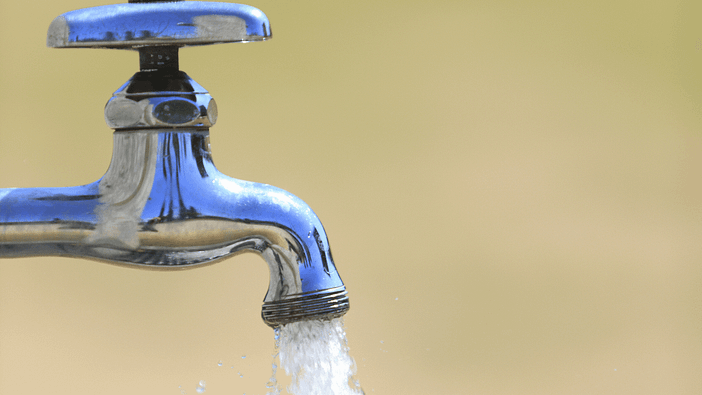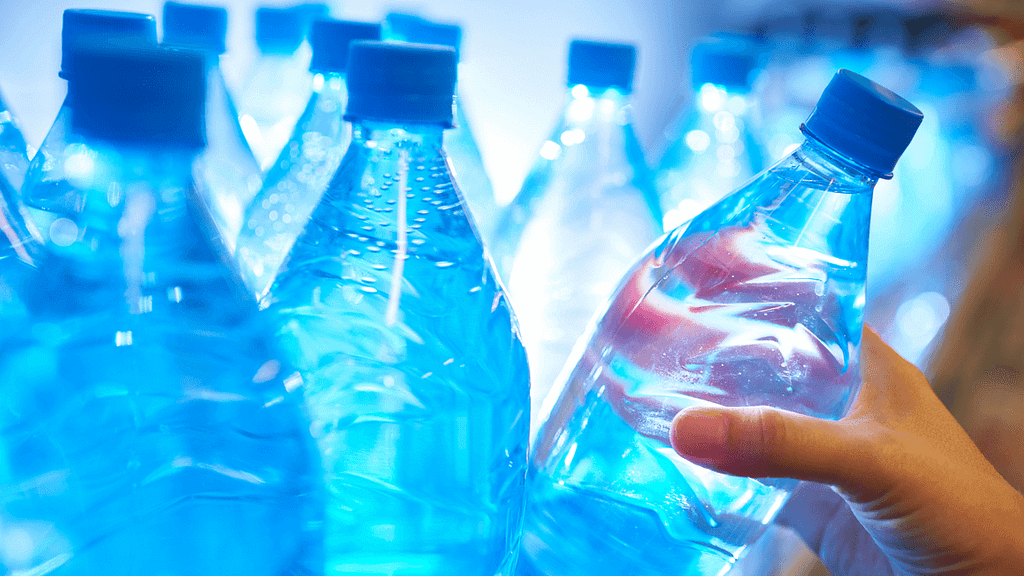Bottled water vs tap water has been a question on the minds of lots of water consumers for a long time. This controversy has been spurred, in large part, because of the various and often horror stories about the quality of America’s drinking water systems such as Flint Michigan, Jackson Mississippi, and a host of other major cities.
Water is essential for our survival, and it’s important to make sure you and those you love are drinking clean and safe water. When it comes to getting our daily dose of H2O, we have two main options: bottled water or tap water. Both have their benefits and drawbacks, but which one is better?
In this article, we’ll compare bottled water vs tap water and provide five reasons to consider when determining which is best for your particular circumstances.
1. The difference in the cost of bottled water vs tap water.
Tap water is significantly cheaper than bottled water. In fact, tap water costs less than $0.02 per gallon, while bottled water can cost up to $0.64 per gallon, more than 3000% more than a gallon of tap water. This means that drinking tap water could save you a lot of money in the long run.
Although bottled water may be more costly, it sometimes proves to be better than tap water when it comes to taste, convenience, and even safety, depending on the geographical location and the local municipal water treatment system.
Therefore, factors other than cost alone should be taken into account before making a decision whether tap water is a better choice than bottled water for consumption purposes. Read all of the information contained in this article and then make the assessment for yourself.
2. The environmental Impact of bottled water vs tap water
Bottled water has a significant impact on the environment. Make sure to include the following two factors when deciding between bottled water and tap water.
- The production and transportation of bottled water requires a lot of energy and resources. According to National Geographics, Americans drink 29 billion bottles of water annually. This is more than any other nation. Making the plastic for the 29 billion bottles of water requires 17 million barrels of crude oil annually. That’s enough to fuel one million vehicles for whole year. This is a huge impact on the environment and the emissions from this production adds to the global warming of our world’s climate which is rapidly deteriorating to our detriment.
- Plastic bottles can take hundreds of years to decompose.
Think about this for a moment. After you drink a bottle of water and dispose of it, it lands in your local landfill or perhaps it ends up in the ocean or other water stream. Likely you don’t think about it because most people who drink bottled water have no idea what plastic bottles do to the environment once they are done emptying the contents.
The reality is, if you lived for 400 years after you disposed of that plastic bottle it would still be in its same form and would not have decomposed or broken down to where it is no longer garbage sitting around dirtying up the environment and contributing to pollution. It takes 450 years for a plastic bottle to decompose. Think about this for a moment when you are making the choice to drink bottled water vs tap water.
In contrast, tap water is delivered through a system of pipes, which is much more environmentally friendly.
3. Quality
Many people believe that bottled water is of higher quality than tap water. However, most tap water in the United States is safe to drink and is regulated by the Environmental Protection Agency (EPA). In fact, most bottled water is just tap water that has been filtered. Additionally, the plastic bottles used for bottled water can leach chemicals into the water, which can be harmful to our health.
Tap water also has challenges when it comes to quality and safety for consumption purposes. America’s drinking water facilities are taxed beyond their capacity to deliver as safe a water supply system as it should. Due to old and dilapidated water and water treatment facilities, much of the tap water supply in the US cannot remove contaminants that lurk within the municipal water treatment plants around the country, despite the valiant efforts of governmental agencies like the EPA (Environment Protection Agency)
Concentration of chemicals defined as “forever chemicals” that exist and are resistance to treatment are found within tap water systems and they show up substantially more in the present tap water flowing through kitchen faucets than they should.
4. Convenience – Does the convenience of bottled water make it a better choice than tap water?
Bottled water is often seen as more convenient than tap water because it’s portable and easy to grab on the go. The argument for the use of bottled water vs tap water often are:
- Convenience of Portability - With bottled water, you can stay hydrated no matter where you go. Whether you're out and about, traveling, or at work, bottled water is readily available and easy to carry.
- Convenient Packaging - Bottled water comes in various sizes, shapes, and packaging, making it easy to store and use. You can choose from bottled water with screw caps, sports caps, or even glass bottles.
- Time-saving Convenience - With bottled water, there's no need to wait for the tap to run cold. You can quickly grab a bottle of cold water from the fridge and be on your way.
- Perfect for travel - Whether you’re traveling to a remote location or going on a road trip, bottled water is a must-have essential that keeps you hydrated and refreshed throughout your journey.
- Portability: Bottled water is highly portable. You can easily carry it with you wherever you go, making it an ideal option for travelers, hikers, and outdoor enthusiasts.
- Perfect for emergencies: Bottled water is a great backup option during emergencies, power outages or natural disasters when tap water may become contaminated. Always have a stock of bottled water for your peace of mind.
All of the above conveniences appear to make bottled water a better choice than tap water on the surface. However, tap water can be just as convenient if you have a reusable water bottle that does not present a hazard to the environment as does bottled water. Plus, you don’t have to worry about running out of water or making trips to the grocery store to restock.
There are several other opposite arguments or positions that may make tap water a better choice than bottled water such as:
Use the above points to determine whether bottled water vs tap water is best for your drinking water purposes.
5. Taste
The taste sense is one of the five human senses. It is essential to our survival because it enables the individual the choice of correct food, which, in turn, is crucial for one's existence, maintenance and function.
The taste of water is subjective and can vary depending on where you live. Some people prefer the taste of bottled water, while others prefer the taste of tap water. However, tap water can be filtered to improve its taste if needed. Additionally, some bottled water can have added minerals or flavors, which can alter the taste.
Bottled water tastes are much more varied and the flavors can be fruit, citrus, carbonated, sweet, bitter and many different other tastes depending on the whims of the consumer.
In conclusion, while both bottled water and tap water have their pros and cons, tap water is the better choice for several reasons. It’s cheaper, more environmentally friendly, and regulated by the EPA. Plus, with a reusable water bottle, it can be just as convenient as bottled water. So, the next time you’re thirsty, consider opting for tap water instead of reaching for a plastic bottle.
Want to know more about water and its importance in every aspect of your life? Get updates on everything you want to know about water including, cooking, safety, health, how to make money from tap water and much more. Click here



